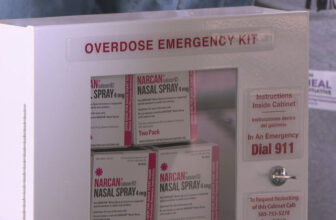West Nile virus symptoms include head and body aches, vomiting, rashes

Alligator seen near Magnolia Lake in Bristol Township Thursday
In an Instagram post made Thursday afternoon, Bristol Township police warn that a “small alligator” was seen near Magnolia Lake.
- A probable case of West Nile virus, currently under CDC confirmation, was identified in Bucks County, Pennsylvania.
- The patient, treated at St. Luke’s Grand View Hospital, remains in recovery.
- While this is the first human case, the virus has been detected in local mosquito populations.
- Most infected individuals are asymptomatic, but some experience fever, aches and rashes; severe cases are rare, but can be fatal.
The first likely case of illness from West Nile virus in Bucks County was identified last month, a county spokesperson confirmed Aug. 11.
A patient treated at St. Luke’s Grand View Hospital in Sellersville in late July is believed to be the first known case of West Nile virus in Bucks County this year. The patient was in critical condition and still recovering, St. Luke’s spokesperson Samuel Kennedy said.
County health officials are still waiting to confirm the West Nile case with the Centers for Disease Control and Prevention, aka CDC, the county spokesperson Jim O’Malley said.
Kennedy said that although the St. Luke’s hospital network hasn’t identified any new cases of West Nile virus in their facilities since the one identified in July, there are likely more cases in the area.
Bucks County officials have detected West Nile among mosquito populations in the Hulmeville/Bensalem area and Quakertown this year. The first positive result in Philadelphia was identified at Pennypack Park in early July.
Pennsylvania is expected to see more West Nile cases in the future as the warming weather extends mosquito season in the state, according to the Environmental Protection Agency and mosquito biologists.
More: Is mosquito spray harmful to humans? What to know about Bucks County’s program.
West Nile virus symptoms
Most people who contract West Nile virus don’t get sick, according to the CDC.
But approximately 1 in 5 people develop symptoms such as head and body aches, vomiting, and skin rashes. Some people who contract a fever with West Nile can remain fatigued for months, the health agency said.
Rarely — approximately 1 in 150 people — West Nile virus can trigger severe symptoms ranging from brain swelling to coma, vision loss and paralysis. Approximately 1 in 10 of those cases are fatal, according to the CDC.
Illness from West Nile virus can be diagnosed from symptoms and blood or spinal fluid tests. Although there’s no specific medicine to treat the virus, people with severe cases may be hospitalized while they recover.
Older age and certain medical conditions, such as diabetes and kidney disease, are risk factors for severe West Nile illness, according to the CDC.
The CDC recommends that people prevent West Nile infection by avoiding mosquito bites. Wearing long shirts, using insect repellant and controlling mosquito populations on your property are all helpful measures.
Most people who have already been exposed to West Nile are likely immune, but people with weakened immune systems might lose their immunity to the virus, according to the CDC.
Jess Rohan can be reached at jrohan@gannett.com.






